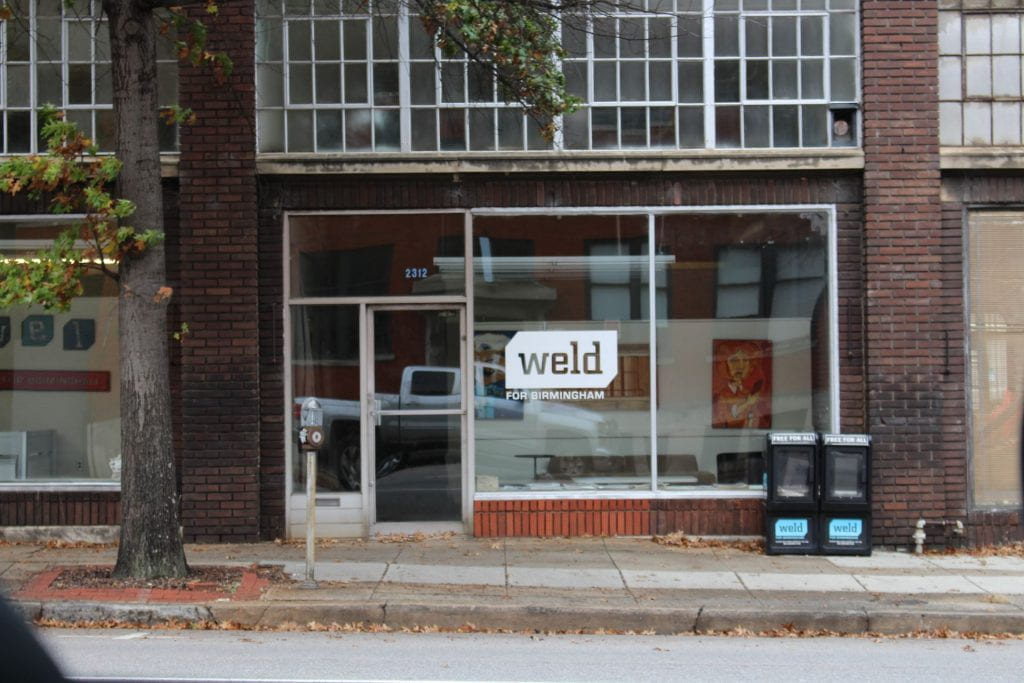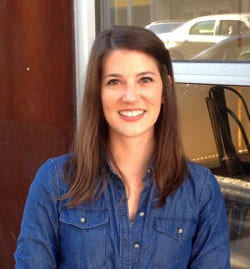By Jay Jaywood
November 13, 2015
When searching for new classes to take, most students have the same kinds of questions. Is the class required for their major? If it is not, is the class fun? The UAB Professional Writing Program’s series of community writing classes, Writing In Birmingham and Writing In The Community, are engaging classes that help students look thoughtfully at the community around them and discover that the act of writing can be an agent of change for Birmingham.
Writing In Birmingham is a 300-level class that hinges on the history of Birmingham and a service learning project involving Inglenook Elementary school. The first portion of the class centers around the book Leaving Birmingham, a fascinating oral history of UAB’s city that spans from the city’s founding to the early 1990s.
While learning about the city’s history through various viewpoints, students also have assignments that force them into the city itself. In one assignment, students write a creative non-fiction piece about a place in the city.
Other assignments include interviewing and writing a profile of a local business owner or community member who is making strides to create change in Birmingham.

Writing With Purpose
Writing In Birmingham hits its stride when it begins its service learning project. The Writing In Birmingham class partners with Inglenook Elementary School for a writing project.
The four-week project sees UAB students engaging elementary school students about the writing process. The Inglenook students learn about brainstorming, outlining, writing, and revising over the course of the project. At the end of the project, the writings are compiled into a Newsletter and the students are celebrated with the principal, superintendent, family, and teachers all in attendance.
Writing In Birmingham is a fantastic class for learning about the Birmingham community, whether a Professional Writing major or not.
Writing In The Community, a 400-level class, follows a similar vein as Writing In Birmingham. While Writing In Birmingham focuses on the entire community, Writing In The Community is a semester long induction into the grant writing process for a local non-profit.
This year’s chosen non-profit, Workshops, Inc., is situated in Avondale and helps people with several different kinds of disabilities find jobs. Through the class, students learn about the organization’s history, its goals, and ways that it engages with the community for change. Students tour the facility and have a town-hall-esque Q&A with its director.
This gets focused into an agency profile written by the students.
Students also interview and profile a person currently at Workshops, telling his or her story in conjunction with the organization. The class culminates with a grant writing project that takes students step-by-step through the grant writing process for a non-profit.
As non-profits survive off of donations and grant money, grant writing is an integral part of brand raising and awareness. Each piece of writing gets compiled into a file given to Workshops, Inc., to help with their future grant writing processes.
Community Writing Benefits
Through both classes, students gain invaluable skills that can help throughout their academic and professional careers. Each class has interviews that help develop students’ interpersonal communication skills.
Both classes also require research and understanding of the local community that must be done outside of class.
Because of the amount of projects in each class, the classes adhere to strict due dates and guidelines. Communication, timeliness, and an understanding of the context and community are all skills that will follow a student through academia and beyond. Furthermore, an early understanding and mastery of these skills can certainly help any new graduate succeed in the workplace.
The series of community writing classes at UAB are designed to get students to begin asking questions about their community and learn how to address these problems through writing with a purpose.
Taking these classes not only help students form a better understanding of challenging writing processes, but also help students develop an appreciation of the city they will call home for four years of their life.














